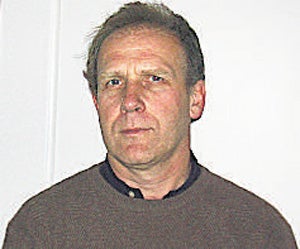Roger Trapp: 'Even poets have been cited nio inspiring business founders & managers"

Henry Stewart, the founder of the London-based IT training company Happy Computers, had twin inspirations when setting up his business nearly 20 years ago. The first was that his experience at the short-lived newspaper News on Sunday showed him how not to run a business. “It was a great idea, a radical tabloid with a serious news agenda, but it was the most appallingly run organisation,” he has said. “It taught me |the importance of management skills.”
The other was rather more positive. This was the “great stories about how people have done it” that he has encountered in management books.
He cites as a “key influence” Ricardo Semler’s Maverick, a book that was in vogue in the 1990s as a sort of how-to manual for managers seeking to encourage employee participation. |It apparently turned Stewart from “an embattled small businessman, ringing back every day from holiday, into somebody who sets the principles and guidelines”.
It is the sort of testimonial that helps to justify the huge business book market. Prominent among the nitty-gritty volumes on the mechanics of business are countless books by and about business celebrities.
Presumably, some people just read them |for the entertainment, but an important aspect behind many of the titles is the idea that they |will in some way inspire readers to seek to emulate Bill Gates, Warren Buffett, Alan Sugar, whoever.
Nor is it just books that push these stars. Reality television has also entered the business world, with such programmes as The Apprentice and Dragons’ Den promoting the idea that Donald Trump, Alan Sugar, Peter Jones and the rest have something to teach would-be business people.
In some cases, this may be true. But it could also be argued that that older television depiction of business, Dallas, is about as valid as a depiction of how business works today.
This is not to say that role models are not important in either inspiring people to set up a business in the first place or in helping them to give a direction to an existing business.
The noted management thinker Rosabeth Moss Kanter, in an article published last year, pointed out that “seeking role models – not just benchmarks – is one |way to find an upside |in the downturn”.
Accepting that it was counterintuitive, because hard times tended to make businesses and people more introspective, she added: “A time of cynicism and mistrust can be made brighter by focusing on heroes. And because every story of success is also a story about persistence despite obstacles, the lessons can be applied to one’s own situation as a source |of inspiration and practical tips”.
But inspiration and encouragement does not have to come just from within business. Many business founders and managers have been inspired by all kinds of people – from political and military leaders to athletes and coaches. Even poets have been cited.
Who a business chooses (and, more importantly, states) as a role model |or inspiration is increasingly important, because in a crowded marketplace such a statement can say a lot about your business.
In an effort to understand better what is driving today’s independent businesses, The Independent and CultureMap, the think-tank focused on small and medium-sized businesses, are launching a role-model survey.
It will take a few minutes of your time to complete, but the answers – to be published in the next edition – will tell you, and us, volumes about business today. So, if you are the owner or a director of a company employing up to 250 staff, we’d like to hear from you.
Join our commenting forum
Join thought-provoking conversations, follow other Independent readers and see their replies
Comments